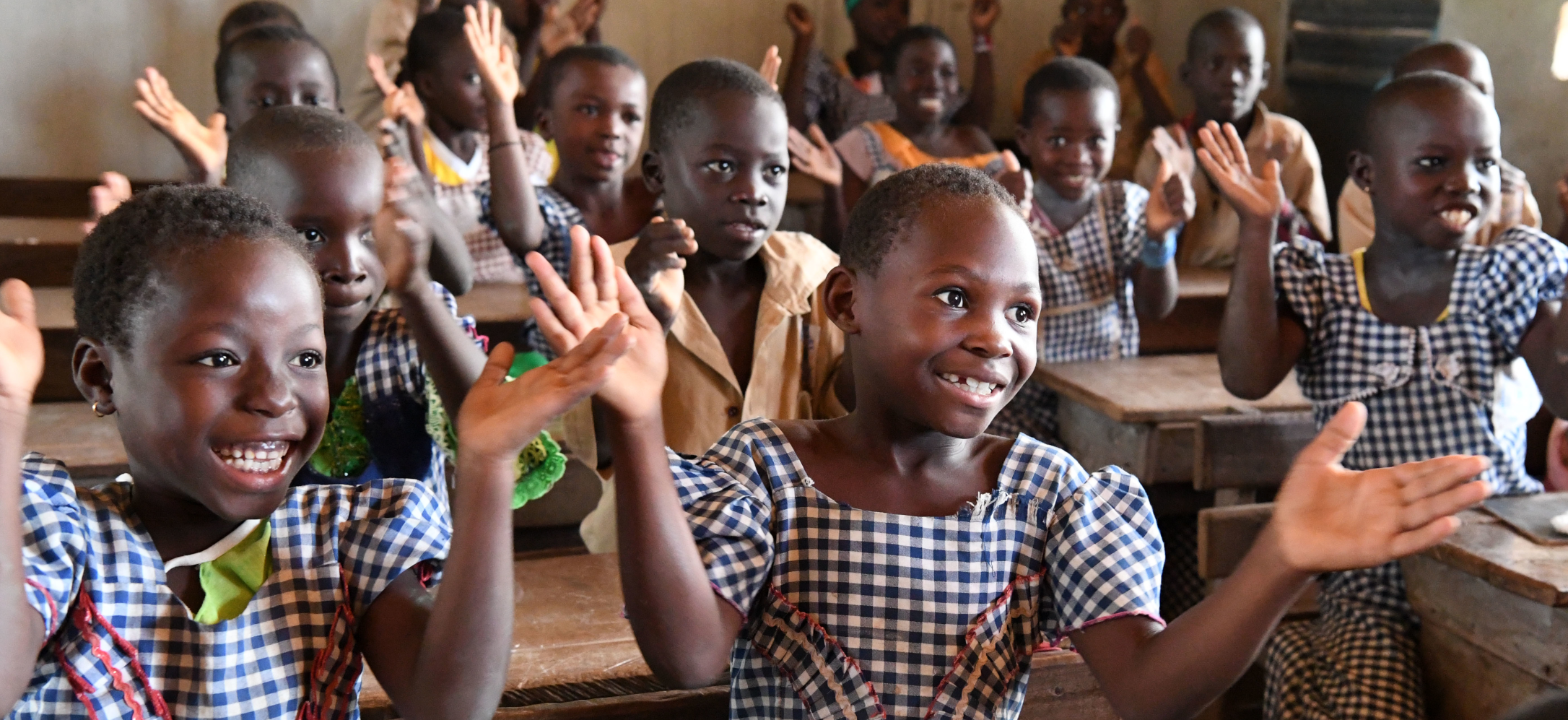Bridge the gap! Invest in nutrition for a world free from hunger
* A blog by SUN Coordinator, Gerda Verburg As cliché as it may sound, 2020 has not given us enough opportunities to celebrate our successes and acknowledge our growth and resilience. Celebrating is important to keep us on track and ensure we stay motivated towards…
* A blog by SUN Coordinator, Gerda Verburg
As cliché as it may sound, 2020 has not given us enough opportunities to celebrate our successes and acknowledge our growth and resilience. Celebrating is important to keep us on track and ensure we stay motivated towards our goals. Today, on 16 October, the world marks World Food Day, so let’s celebrate progress made, but also recognise how far away we are from ensuring a world without malnutrition and hunger. Still today, more than one quarter of women, men and children all over the world lack access to nutrition services, with as many as 3 billion people not being able to afford a healthy diet. Without the right political and strategic priority setting, I imagine these figures will be much higher when we mark World Food Day next year.
From farm to fork – nutrition, health, and agriculture are integrally linked. Good nutrition begins at home – where we rear our children and take care of ourselves and each other. Global challenges brought on or exacerbated by the COVID-19 pandemic, such as economic instability and climate change, are disproportionately affecting small-scale farmers – most of whom are women – that grow the food that many of us are grateful to have on our plates each day.
The question then is: with the knowledge that we have enough healthy and nutritious food to go around, how can we make sure everyone has the access they both need and deserve to this food, leaving no one behind?
A food emergency, [1] as described by the UN Secretary-General, is what we must prevent – at all costs. There is a clear way. By bridging the financing gap for Sustainable Development Goal 2 (zero hunger and malnutrition). The 2021 Nutrition for Growth and UN Food Systems summits offer unique opportunities to present concrete, inclusive and multi-sectoral country commitments towards ending malnutrition and zero hunger. This is the chance to make sure that all food systems are better designed – to the benefit of everyone – from farmer to consumer- while at the same time nourishing the planet in a way that suits the European Green Deal.
Nutrition is not only an agricultural or health issue. It is also an economic issue. This means nutrition must be better integrated into national development plans, for lasting impact. Well-nourished families lead to more peaceful and resilient communities, economic development, job creation, decreasing the risks of conflicts, refuge and migration. Yet, recent estimates [2] suggest that to meet this challenge, donor governments must spend an additional USD 14 billion a year on average until 2030 to end hunger, double the incomes of 545 million small-scale farmers, and limit agricultural emissions in line with the Paris climate agreement. This roughly translates into doubling the amount of the development investment in food security and nutrition each year. Furthermore, low- and middle-income countries’ must also provide an additional USD 19 billion each year from their own budgets, to accompany development cooperation.
Building forward better: Improving food systems together
Investing in agricultural development is critical to not only end hunger and malnutrition, but also to transform food systems and respond to climate change and COVID-19. It is not about building back, as food systems were insufficient before, so I prefer to think of building forward better.
This is where we need multi-stakeholder, multi-sectoral partnerships and initiatives, such as the Global Agriculture and Food Security Program (GAFSP), as we do not succeed when we work in silos.
Earlier this week, I was impressed to see the German government step up as nutrition champions, for convening a series of events, including the launch of GAFSP’s replenishment. So far, over a million people in some of the world’s most impoverished countries have better access to nutritious food and more diverse diets, due to integral GAFSP support.
Looking ahead, GAFSP and the SUN Movement will increase their collaboration and work closer together – as partners – by advocating for greater SDG 2 action. GAFSP’s offer is an attractive one: they provide an additional source of financing that countries can use to incentivise action – and much needed financing next to the domestic investment – on nutrition at the national level. This financing model can support SUN stakeholders across our 62 member States to ensure nutrition outcomes are better leveraged in agricultural policy, investment and results.. This incentive – or ‘carrot’ – has led to more and better nutrition interventions to date.
Let me give you some examples. In Lao PDR, poverty and malnutrition has been reduced (140,829 people were reached – 82 percent were women) by strengthening public services, establishing community-driven, agriculture-based nutrition interventions, and linking farmers to markets. In Nepal, the host of the 2019 SUN Movement Global Gathering, [3] food availability as well as crop and livestock productivity hand in hand with improving feeding practices have been improved (656,245 poor people – 91 percent were women between 2011 and 2018). GAFSP’s agile model has proved extremely useful during the COVID-19 crisis, by allocating nearly USD 60 million in additional grant funding to public sector and producer organisation-led projects.
So, let us take this World Food Day, as a starting point, to renew our commitment to invest and collaborate towards a world without malnutrition, food insecurity and hunger. So, when we are done celebrating our successes and growth, we come together to spur more growth in the period to come and build forward better, together.
Gerda Verburg,
UN Assistant Secretary-General
and SUN Movement Coordinator
Photo: © UNICEF/UNI223919/Frank Dejongh


